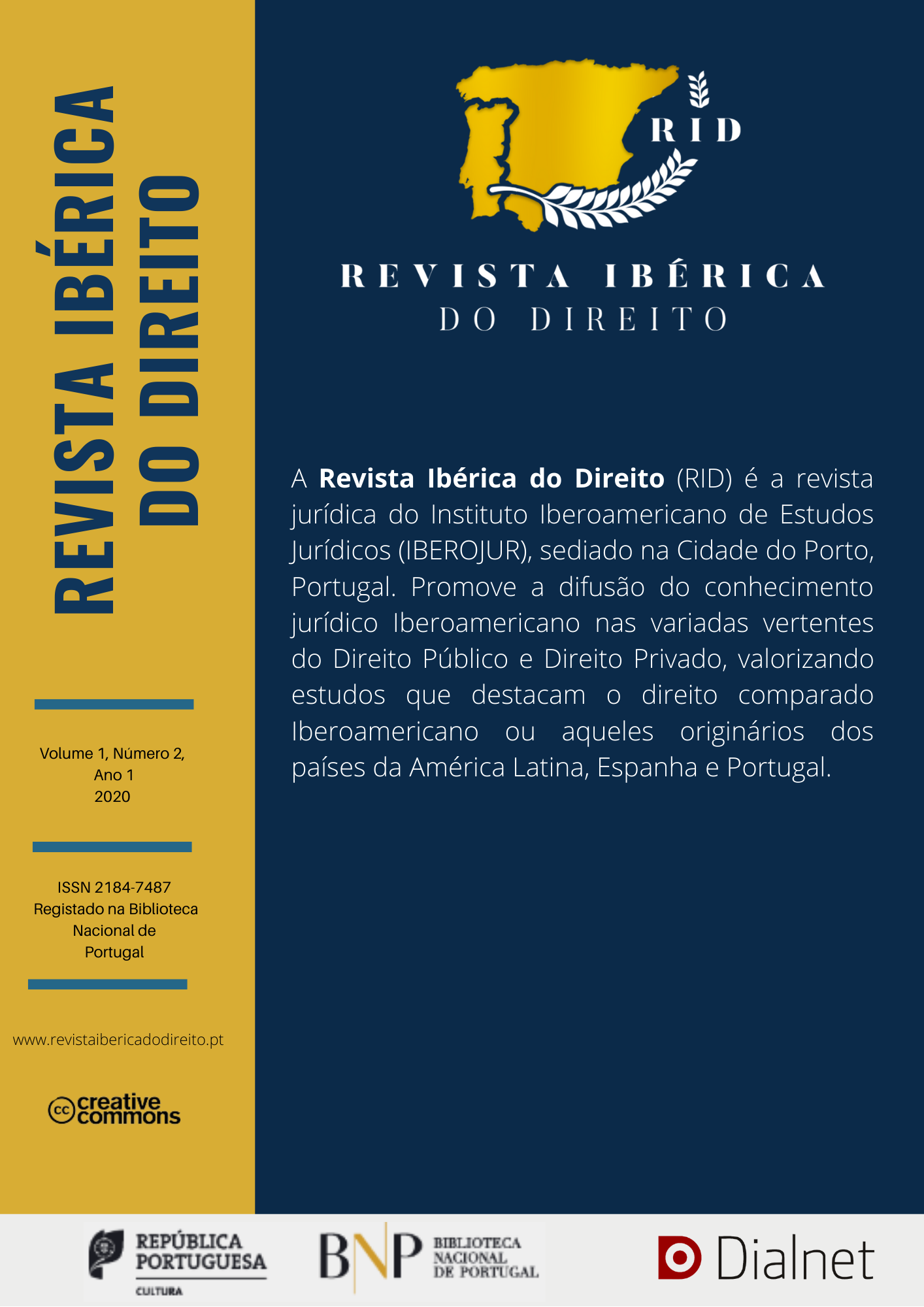Sensitive Data, Technologies and Covid-19 and the Law
Keywords:
Technology, sensitive data, Covid-19, States and healthAbstract
Many describe technological development as a revolution in society. But what good is the use of electronic means if they serve the interests of large companies or just to provide fun content on social networks? The develop- ment of technological means should also have human health as a priority, not only in pandemic times, but as a rule in everyday life. Identifying disruptions and weaknesses in the health system is paramount in order to achieve public health. The technology should enable and streamline the practices in health units among professionals and also favor access to users. The duty to care for sensitive data is of relevant importance, as this data cannot be accessible to unauthorized persons, which could result in a loss of users’ privacy. People’s rights and freedoms cannot be threatened in this way. Personal data that are part of the health economy, which we can call sensitive data, cannot be treated as other data because they need greater privacy and security. Covid-19, which affected the whole of humanity this year, proved that it is necessary to work collaboratively at an international level to restore public health, with States and the whole of society in a joint effort, being the technological means useful at this moment to try continue “normal” activities, which may be suspended. Col- laboration between states is paramount not only for research into the Covid-19 vaccine but also, after its discovery, to avoid selfish attitudes that would cause greater inequality between nations.
References
BORGES, Valdecir de Godoy e SOARES, Berthone Venâncio, O uso do QR Code em equipamentos médicos, Revista Acervo Científico, [Em linha], [2019], [Consult. 22 set. 2020], Disponível em WWW:https://doi.org/10.25248/reac.e392.2019 >.
BUTTARELLI, Giovanni, Inteligência Artificial, Robótica, Privacidade e Proteção de Dados, [Em linha], [2017], [Consult. 24 set. 2020], p. 26, Disponível em WWW:https://www.cnpd.pt/home/revistaforum/forum2017_1/files/assets/basic-html/page-26.html >.
CALVÃO, Filipa Urbano, Direito da Proteção de Dados Pessoais – Relatório Sobre o Programa, os conteúdos e os Métodos de Ensino da Disciplina, Porto: Universidade Católica Editora, 2018.
CARVALHO, Jorge Moraes de, Manual de Direito do Consumo, Coimbra: Almedina, 2018.
COMISSÃO EUROPEIA, Estados-Membros e Comissão colaboram na promoção da inteligência artificial desenvolvida na Europa, [Em linha], [2018], [Consult. 24 set. 2020], Disponível em WWW:
https://ec.europa.eu/commission/presscorner/detail/pt/IP_18_6689 >.
FREITAS, Pedro Caridade de, História do Direito Internacional Público – Da Antiguidade à II Guerra Mundial, Cascais: Principia, 2015.
HARARI, Yuval Noah, Homo Deus – História Breve do Amanhã, tradução de AMARAL, Bruno Vieira, Amadora: Elsinore, 2017.
Lei n.º 58/2019.
MARKTEST Grupo, Penetração de telemóvel nos 96.5%, [Em linha]. [2018]. [Consult. 22 set. 2020]. Disponível em WWW:
https://www.marktest.com/wap/a/n/id~2377.aspx >.
MIQUEL, María Soledad Segura e RODRIGUEZ, Sonia Lydia Rujas, Plan Comercial: Adopción del Sistema de Código QR en España, [Em linha], [2020], [Consult. 22 set. 2020], Disponível em WWW:http://rua.ua.es/dspace/handle/10045/107781 >.
PINTO, Eduardo Vera-Cruz, Filosofia para um Direito em espera. O Jurídico em tempos de Covid-19, (texto aberto em curso), 2020.
PINTO, Eduardo Vera-Cruz, Notas Jurisprudenciais Soltas de Contratualística Civil por Causa da Pandemia de COVID-19 em Angola, Revista RALJ, nº 1, 2020.
PINTO, Eduardo Vera-Cruz, Terra de Santa Maria - Terra-Mãe do Primeiro Portugal- Estudo de Direito Medieval Hispânico sobre a Independência de Portugal (1096-1179), vol. II, Comissão de Vigilância do Castelo de Santa Maria da Feira, Santa Maria da Feira, 2007.
PINHIERO, Alexandre Sousa (Coord.), Comentários ao Regulamento Geral de Proteção de Dados, Lisboa: Almedina, 2018.
PORDATA, Base de Dados Portugal Contemporâneo, Assinantes do acesso à Internet, [Em linha]. [2019]. [Consult. 22 set. 2020]. Disponível em WWW:
https://www.pordata.pt/Portugal/Assinantes+do+acesso+%c3%a0+Internet-2093 >.
RIBEIRO, José Mendes, Saúde Digital, Lisboa: Fundação Francisco Manuel dos Santos, 2019.
SALDANHA, Nuno, Novo Regulamento Geral de Proteção de Dados, Lisboa: FCA, 2018.
SANCHEZ, Renato de Brito, COSTA, Diego Augusto Miquelin e FERNADES, João Carlos Lopes, A Internet das Coisas Conectando Casas as Pessoas, Revista Eniac Pesquisa, Vol. 8, nº. 1, 2019.
SAWH, Michael, The best smart clothing: From biometric shirts to contactless payment jackets, [Em linha], [2018], [Consult. 22 set. 2020], Disponível em WWW:https://www.wareable.com/smart-clothing/best-smart-clothing >.
TAPSCOTT, Don, The Digital Economy: Promise and Pril in the age of Networked Intelligence, New York: McGraw-Hill Companies, 1995.
UNION, agency of the European, European Centre for Disease Prevention and Control, [Em linha]. [2020]. [Consult. 21 set. 2020]. Disponível em WWW:https://www.ecdc.europa.eu/en/publications-data>.
Downloads
Published
Issue
Section
License
Copyright (c) 2020 Revista Ibérica do Direito

This work is licensed under a Creative Commons Attribution-NonCommercial-NoDerivatives 4.0 International License.
Este trabalho está licenciado sob uma Licença Creative Commons Attribution 3.0


